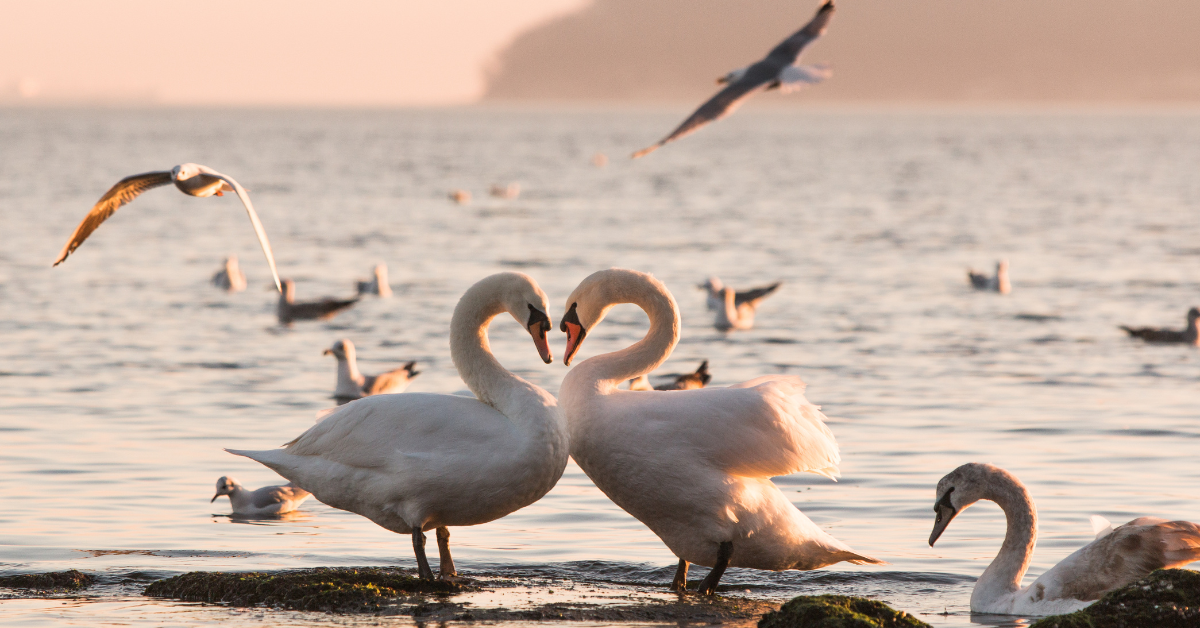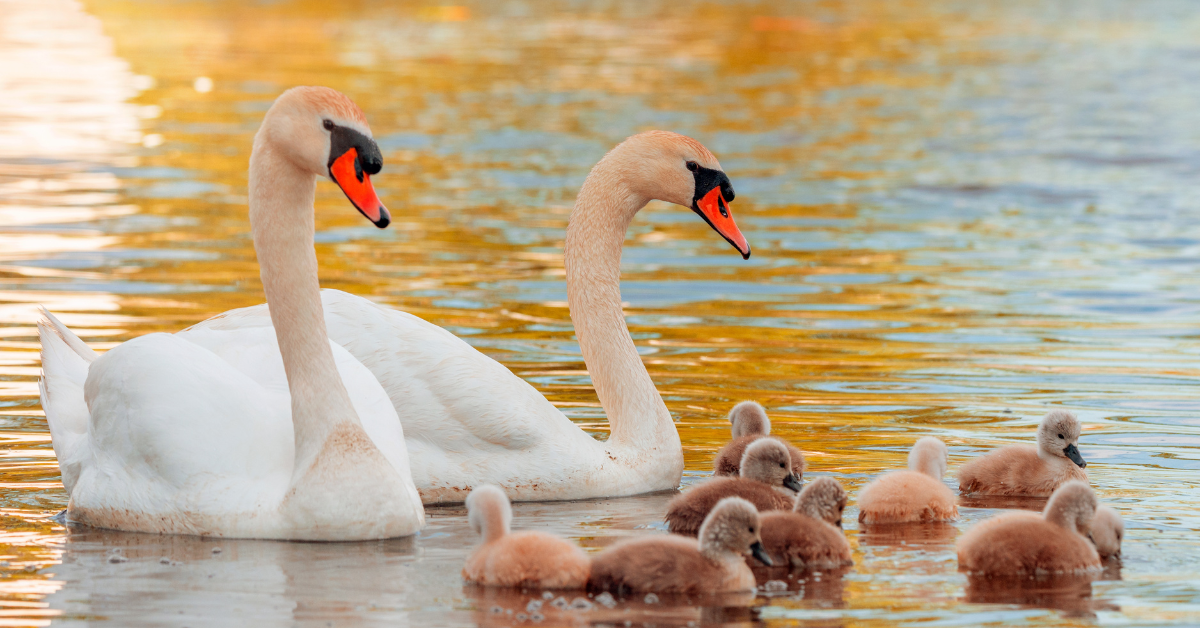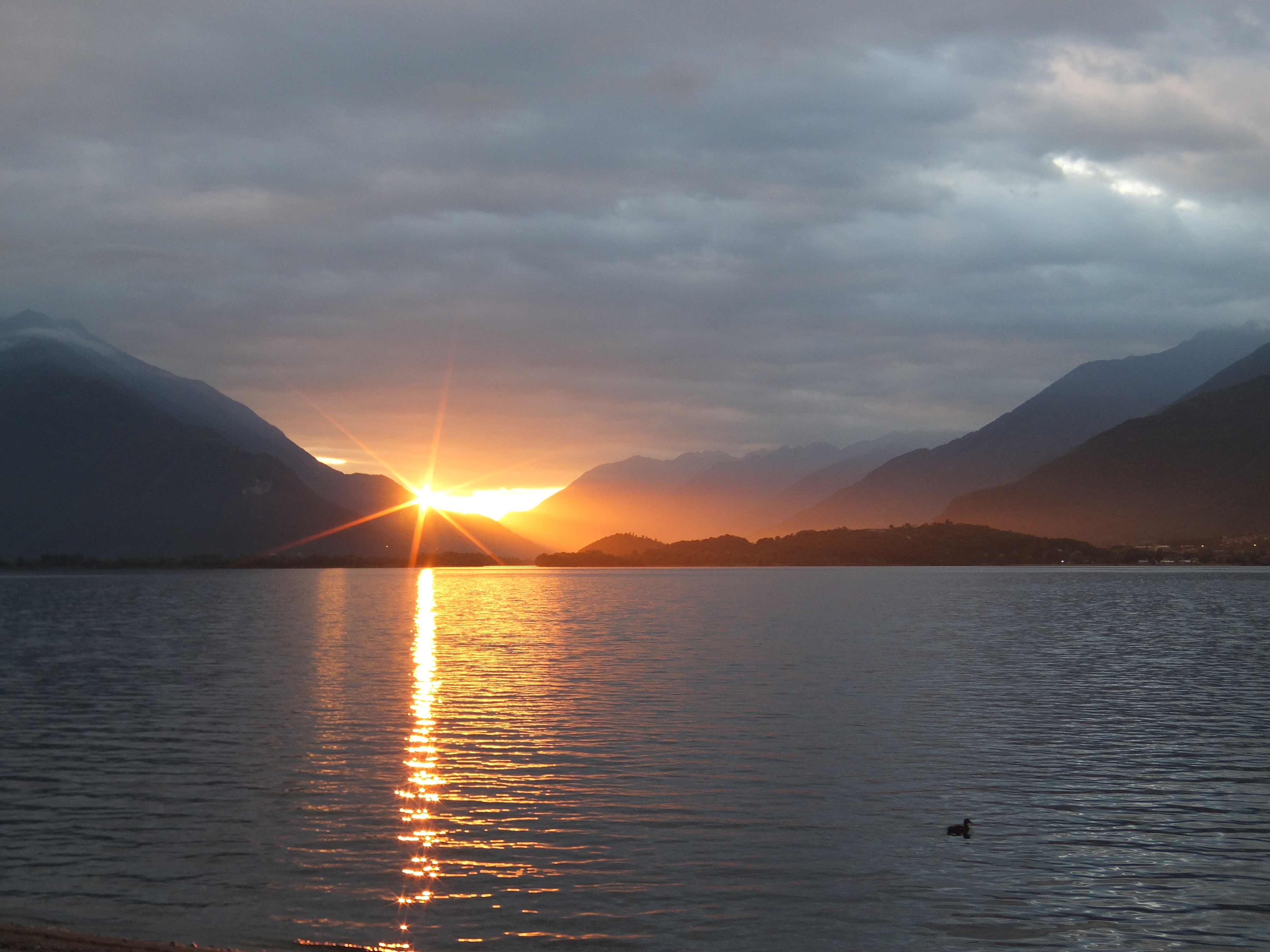Team Piccolo Camping
31-07-2023The Swans of Lake Como: a spectacle of nature

Swans are aquatic birds with an elegant bearing and white plumage. This species loves stability and familiar environments where they then reproduce and brood. They prefer the life in restricted communities and often, the families or the pairs of swans carve out moments of solitude. Let's get to know them better!
Swans can take flight with a strong push with their hind legs, and once they leave the ground they fly with graceful movements, thanks to their large white wings. They are essentially herbivores and eat aquatic and marsh plants, when they are on land they also feed on grasses, leaves, cereals and various seeds. Unfortunately, many tourists with good intentions give them bread - which they are greedy for! - causing their death. This food does not particularly cook for adult swans, but it is dangerous for hatchlings and young ones. Young swans are hardly recognizable compared to adults due to the plumage no longer gray like the little ones, but white like the big ones.
On the lakefront there are many signs asking tourists NOT to give bread to the swans, so how can you interact with these fantastic creatures?
It seems that foods such as raw vegetables (lettuce, carrots chopped, boiled potatoes, cooked rice, boiled legumes) help their health.
Swans are monogamous animals: they choose only one partner, and stay by their side for life. In winter, courtship takes place through a real dance on the water, with characteristic sounds and soft movements of the neck. Male and female then swim together by dipping their beaks several times in the water and crossing their necks in a sort of love seal.
In spring, they build their nests in intimate and hidden places, usually among the reeds, and the female lays 5 to 8 blue/grey eggs. The incubation of the eggs lasts about 35 days, while the male guards the nest.

When they are born, the young have a gray plumage which they will keep until adulthood. They move tenderly awkwardly, and start swimming from an early age. Despite their "independence", the parents maintain an extremely protective attitude at least up to 4-5 months of life. The swan is a very territorial and possessive animal, for this reason it does not like too much physical closeness, but they do not avoid beaches with tourists they usually admire them fascinated.They are docile animals, if not disturbed or approached abruptly.
Seeing them is a real joy for the eyes and for the heart!


